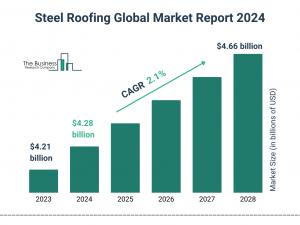
The Smart Cities Market, valued at USD 542.26 billion in 2023, is expected to grow at a compound annual growth rate (CAGR) of 16.02% from 2023 to 2033
INDIA, October 28, 2024 /EINPresswire.com/ — Smart cities represent a new wave of urban development that leverages advanced information and communication technologies (ICT) and data-driven solutions to enhance the efficiency, sustainability, and overall quality of life for residents and visitors alike. These urban areas incorporate a diverse array of digital technologies, including the Internet of Things (IoT), artificial intelligence (AI), and sophisticated data analytics, to streamline and optimize infrastructure and services across various sectors. This includes critical domains such as transportation, energy management, healthcare delivery, public safety, and environmental monitoring. The overarching goal of smart cities is to address pressing urban challenges, including traffic congestion, air pollution, inefficient public services, and resource management inefficiencies. By harnessing real-time data insights, smart cities empower decision-makers to make informed choices that improve urban planning and governance. For instance, smart traffic management systems can utilize real-time data from sensors to alleviate congestion, while smart energy grids can optimize electricity usage based on demand forecasts. Moreover, smart cities aim to create environments that are not only functional but also more livable and resilient. This includes enhancing urban infrastructure to withstand environmental challenges, such as climate change and natural disasters. By integrating sustainable practices into their development, smart cities promote economic growth while prioritizing environmental sustainability and social well-being. In addition to improving quality of life, smart cities foster inclusivity by ensuring that technology and services are accessible to all residents, regardless of socio-economic status. This approach encourages community engagement and collaboration in the development of urban spaces, allowing for tailored solutions that meet the specific needs of diverse populations. As smart cities continue to evolve, they serve as models for future urbanization, where technology and data play pivotal roles in creating sustainable, efficient, and vibrant communities. Through strategic investments in infrastructure, technology, and community engagement, smart cities are poised to transform urban living, driving innovation and improving the overall health of urban ecosystems.
For More Information: https://evolvebi.com/report/global-smart-cities-market-analysis/
Fueling Growth: The Essential Ingredients
The swift urbanization and population growth occurring globally are pivotal factors fueling the expansion of the Smart Cities Market. As an increasing number of individuals migrate to urban centers, the necessity for efficient and sustainable urban infrastructure and services intensifies. This surge in urban population creates pressing challenges, such as traffic congestion, air pollution, inadequate public services, and inefficient resource management, prompting city planners and governments to adopt smart city solutions. Smart city technologies leverage advanced data analytics, Internet of Things (IoT) devices, and artificial intelligence to create integrated systems that enhance urban living. For instance, smart transportation solutions, including intelligent traffic management systems and real-time public transit updates, help alleviate congestion by optimizing traffic flow and providing commuters with timely information. Additionally, smart energy management systems enable cities to monitor and control energy consumption, reducing waste and promoting sustainability. The push for sustainability is also a critical driver in the smart cities market. As urban areas face the adverse effects of climate change, smart technologies can help mitigate these impacts by optimizing energy use, reducing emissions, and improving waste management. For example, smart waste management systems use sensors to monitor waste levels in bins, enabling more efficient collection routes and reducing operational costs. Moreover, the demand for improved quality of life in urban areas drives the adoption of smart city solutions. Residents increasingly expect cities to provide efficient services, safe environments, and high-quality public spaces. Smart city initiatives can enhance public safety through advanced surveillance systems and emergency response technologies, fostering a sense of security among residents.
The future of Smart Cities Market
The ongoing evolution of technology, encompassing areas such as the Internet of Things (IoT), artificial intelligence (AI), cloud computing, and 5G networks, provides substantial opportunities for the Smart Cities Market. These advancements facilitate the creation of increasingly sophisticated and scalable smart city solutions, significantly enhancing efficiency, sustainability, and overall quality of life in urban environments. IoT devices and sensors collect real-time data on various aspects of urban life, including traffic patterns, energy usage, and environmental conditions. This data enables city officials to make informed decisions that improve service delivery and resource management. AI algorithms analyze vast amounts of data to uncover insights, optimize operations, and predict future trends. For instance, AI can enhance traffic management systems by predicting congestion patterns and optimizing signal timings, thus improving overall traffic flow.
For sample report pages – https://evolvebi.com/report/global-smart-cities-market-analysis/
North America to main its dominance in 2023
North America stands at the forefront of the Smart Cities Market, leveraging a combination of advanced digital infrastructure, significant investments in technology innovation, and proactive government initiatives aimed at promoting smart city development. The region boasts a well-established digital infrastructure, which is crucial for supporting smart city technologies. This includes high-speed internet, extensive connectivity options, and the availability of robust IoT networks that enable real-time data collection and analysis. There is a strong focus on research and development within North America, with both public and private sectors investing heavily in emerging technologies. Innovations in IoT, AI, and data analytics are at the forefront, providing the tools needed to enhance urban management and improve the quality of life for residents. Various federal, state, and local governments in North America are implementing initiatives to support the transition toward smart cities. These include funding programs, policy frameworks, and partnerships that encourage collaboration between technology providers and city planners. Such initiatives facilitate the adoption of smart solutions that address urban challenges such as traffic congestion, waste management, and energy consumption.
Get access to the report – https://evolvebi.com/report/global-smart-cities-market-analysis/
Core Market Segments
“The hardware segment is expected to grow faster throughout the forecast period.
The Smart Cities Market is segmented into three primary components: Hardware, Software, and Services. The hardware segment holds a dominant position within the market due to the essential role that physical infrastructure plays in the implementation of smart city solutions. These devices collect real-time data from various urban environments, such as air quality, traffic patterns, and energy consumption.”
“The Smart Governance segment is expected to grow faster throughout the forecast period.
The market can also be analyzed based on various applications, which include Smart Governance, Smart Energy, Smart Building, Smart Utilities, Smart Transportation, Smart Healthcare, and others. Leading the Smart Cities market, this application highlights the critical role of data-driven decision-making and digital governance frameworks in managing urban environments. These technologies are employed to analyze vast amounts of data, enabling city officials to make informed decisions based on real-time insights. These tools facilitate communication and interaction between city administrators and residents, promoting transparency and participatory governance.”
Market Dominators
IBM Corporation, Ericsson, Honeywell, Huawei Technologies Co Ltd., AT&T Inc., Siemens AG, Hitachi Corporation, Cisco Systems, Inc., Oracle Corporation, Microsoft Corporation, Schneider Electric SE
Key Matrix for Latest Report Update
• Base Year: 2023
• Estimated Year: 2024
• CAGR: 2024 to 2034
About EvolveBI
Evolve Business Intelligence is a market research, business intelligence, and advisory firm providing innovative solutions to challenging pain points of a business. Our market research reports include data useful to micro, small, medium, and large-scale enterprises. We provide solutions ranging from mere data collection to business advisory.
Evolve Business Intelligence is built on account of technology advancement providing highly accurate data through our in-house AI-modelled data analysis and forecast tool – EvolveBI. This tool tracks real-time data including, quarter performance, annual performance, and recent developments from fortune’s global 2000 companies.
Swapnil Patel
Evolve Business Intelligence
[email protected]
Visit us on social media:
LinkedIn
Legal Disclaimer:
EIN Presswire provides this news content “as is” without warranty of any kind. We do not accept any responsibility or liability
for the accuracy, content, images, videos, licenses, completeness, legality, or reliability of the information contained in this
article. If you have any complaints or copyright issues related to this article, kindly contact the author above.
![]()
Article originally published on www.einpresswire.com as The Smart Cities Market Revolutionizing Urban Living| Says Evolve Business Intelligence




